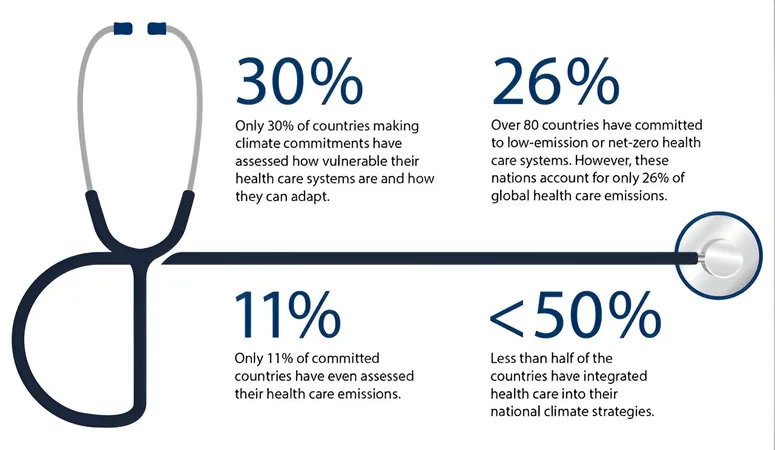
New Study: Is Coffee During Pregnancy Safe for Baby's Brain Development?
2024-10-12
Author: Yu
Introduction
A groundbreaking study from Australia has revealed that consuming coffee during pregnancy may not pose the risks previously believed regarding neurodevelopmental issues in children. This research, conducted by Dr. Gunn-Helen Moen and PhD student Shannon D’Urso from the University of Queensland’s Institute for Molecular Bioscience, analyzed extensive genetic data from thousands of Norwegian families.
Cultural Context and Methodology
Dr. Moen noted that Scandinavians are renowned for their high coffee consumption, averaging over four cups daily. Interestingly, the cultural acceptance of coffee during pregnancy in this region provides a unique backdrop for the study. The research involved thorough questionnaires regarding the parents’ coffee intake before and during pregnancy, combined with developmental assessments of children up to the age of 8, evaluating their social, motor, and language skills.
Findings
Contrary to fears that caffeine could adversely affect fetal brain development due to its ability to cross the placenta, the study found no direct association between maternal coffee consumption and developmental difficulties in children. Dr. Moen explained that physiological changes in pregnancy impact how caffeine is processed, yet her team's innovative approach—known as Mendelian randomization—allowed them to rule out confounding factors like alcohol consumption, smoking, and dietary habits. This method is akin to conducting a randomized controlled trial without exposing pregnant mothers and their babies to potential risks.
Previous Research and New Insights
While previous observational studies suggested possible links between caffeine and negative outcomes, this study offers fresh insights into the complexities of maternal behavior and fetal development. Prior investigations by Dr. Moen indicated that coffee consumption did not influence birth weight, miscarriage rates, or stillbirth incidences, reinforcing the notion that moderation is key.
Cautions and Future Research
Despite these promising findings, the research team urges expectant mothers to adhere to established medical guidelines regarding caffeine intake. While coffee might not heavily impact neurodevelopment, other factors associated with high caffeine consumption could still affect pregnancy outcomes.
Conclusion
Looking ahead, the researchers aim to use similar methodologies to further explore genetic and environmental influences on neurodiversity and the broader implications for brain development during pregnancy. This could pave the way for a better understanding of how various factors contribute to children's growth and development.
The study is part of the Norwegian Mother, Father, and Child Cohort Study (MoBa), which has been instrumental in advancing maternal and child health research. With collaborators from Norway and England, the findings highlight an important aspect of prenatal care, suggesting that coffee, if consumed wisely, may be less of a concern than once thought.
As always, pregnant women should consult healthcare providers to make informed decisions about their caffeine consumption. Could this study change the way we approach coffee during pregnancy? Only time—and further research—will tell!



 Brasil (PT)
Brasil (PT)
 Canada (EN)
Canada (EN)
 Chile (ES)
Chile (ES)
 España (ES)
España (ES)
 France (FR)
France (FR)
 Hong Kong (EN)
Hong Kong (EN)
 Italia (IT)
Italia (IT)
 日本 (JA)
日本 (JA)
 Magyarország (HU)
Magyarország (HU)
 Norge (NO)
Norge (NO)
 Polska (PL)
Polska (PL)
 Schweiz (DE)
Schweiz (DE)
 Singapore (EN)
Singapore (EN)
 Sverige (SV)
Sverige (SV)
 Suomi (FI)
Suomi (FI)
 Türkiye (TR)
Türkiye (TR)